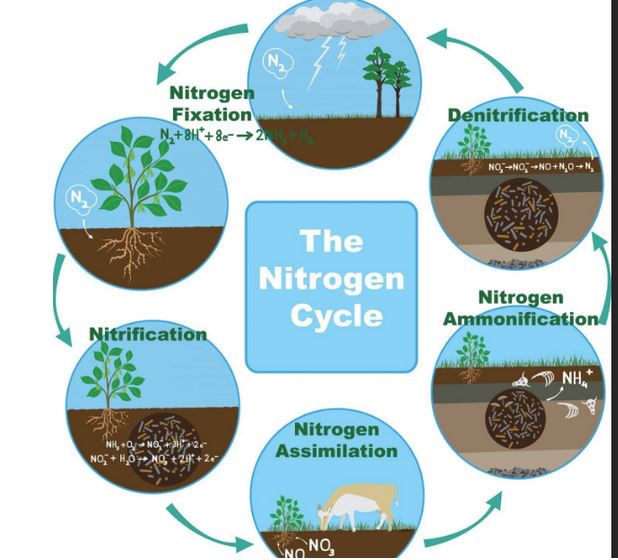No Rules, Just Right

(Here’s the nitrogen cycle. Insert the EPA logo somewhere in the circle at random the way they do).
Sorry to bother you on an already busy morning, but here is another way things work these days. It is something that would have come up as “news” back when our budget system worked. It might have started in the Agriculture Committees, House and Senate, and been a matter of some controversy. since it directly affects a whole industrial segment and all American consumers.
These days, a non-elected Federal agency theoretically responsible to the Executive Branch makes a finding, announces a public comment period no one has heard about, with immediate implementation. That is how the system now works. Here is a sample, not dissimilar to the other startling ones like remote control car shut off. It was not reported on the legacy media, but on Substack by dr. Robert Malone:
EPA Threatens Locally Produced Beef
Mission Creep: Proposed EPA Rule Shuts Down Small Meat Producers
ROBERT W MALONE MD, MS
APR 08, 2024
EPA Threatens Locally Produced Beef
In Another Blow to Decentralized Natural Meat Production, EPA Rule Indirectly Shuts Down Small Meat Producers via Clean Water Act Overreach
American’s Will Lose the Choice to Buy Local Meats
On January 23, 2024, under Biden Administration guidance, the Environmental Protection Agency (EPA) proposed a new rule that will bring 3,879 meat and poultry products (MPP) processing facilities under their jurisdiction. This was swiftly followed by an abbreviated comment period which closed on March 25, 2024, and then immediate implementation of the rule change. All justified by wastewater levels of Nitrogen and Phosphorus coming from animal meat processing, mirroring the WEF agenda to minimize Nitrogen runoff from European farms which has sparked the widespread farmer protests throughout the European Union.
The new rule involves a major shift in the technology-based effluent limitations guidelines and standards (ELGs) for the meat and poultry industry, threatening their livelihoods by forcing them to add water filtration systems to their facilities.
What does this mean to small meat processing facilities? It’s been reported that the initial cost to install a water filtration system bringing them into compliance be $300,000-400,000 with a minimum of $100,000 annual maintenance. This would force many small meat processing facilities to shutter their doors.
As someone else noted in an advertising campaign, “No rules, just right.”
– vic
